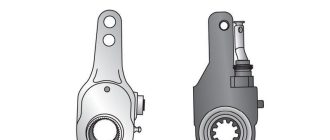
The Evolution of the Insurance Adjuster Profession.
The insurance adjuster profession has undergone significant changes over the years, reflecting advancements in technology and the ever-changing landscape of the insurance industry. In the past, insurance adjusters were primarily responsible for policy inspections, determining coverage limits, and evaluating damages. These roles required strong communication skills, customer service expertise, and a deep knowledge of insurance policies and laws.
Today, however, the insurance adjuster profession has evolved into a more dynamic and multifaceted role. With the advent of digital claims processing, adjusters now rely on sophisticated software and technology to evaluate claims and streamline the claims process. This shift has transformed the adjuster’s role from a primarily field-based profession to one that combines field work with data analysis and evaluation.
The modern insurance adjuster must possess a diverse skill set, including strong communication skills to interact effectively with policyholders, insurance agents, and other professionals. Additionally, adjusters must have a deep understanding of insurance policies, laws, and regulations to accurately assess damage and determine coverage. A background in construction, engineering, or a related field can also be beneficial in evaluating property or vehicle damage.
Experience is invaluable in the insurance adjuster profession. Seasoned adjusters have developed a keen eye for detail and a knack for identifying potential fraud or inconsistencies. They understand the nuanced aspects of complex claims and can navigate the intricacies of the insurance industry with ease. As the insurance landscape continues to evolve, adjusters must stay up to date with changes in policy coverage, claims processes, and relevant technologies to provide the best possible service to policyholders.
In conclusion, the insurance adjuster profession has come a long way from its origins in policy inspections. Today, adjusters rely on their strong communication skills, extensive industry knowledge, and ability to evaluate claims using digital tools. As technology continues to shape the insurance industry, the insurance adjuster profession will continue to adapt and evolve to meet the changing needs of customers and insurers.
The Genesis of Insurance Adjusters
The insurance adjuster profession has a long history, evolving from a simple policy inspection role to a complex and dynamic profession. Insurance adjusters are highly skilled professionals who play a crucial role in the claims process, evaluating and settling claims for policyholders.
Insurance adjusters are responsible for assessing the validity of insurance claims and determining the amount of compensation that policyholders are entitled to. Their main role is to investigate and evaluate claims, using their knowledge of insurance policies, coverage limits, and applicable laws to ensure a fair and accurate settlement.
Effective communication is a key skill for insurance adjusters. They must be able to gather information from policyholders and witnesses, interview claimants, and present their findings to insurance companies. Clear and concise communication is essential, as insurance adjusters need to explain complex insurance concepts to customers in a way that they can understand.
Technology has greatly impacted the insurance adjuster profession, allowing for more efficient claims processing and evaluation. Digital claims processing systems have replaced traditional paper-based methods, streamlining the claims handling process and improving accuracy. Insurance adjusters must now be familiar with various software programs and tools that aid in claims evaluation and settlement.
The insurance adjuster profession continues to evolve as technology advances. The use of artificial intelligence and machine learning algorithms is becoming more prominent in claims processing, allowing insurance adjusters to analyze and evaluate data more effectively. Insurance adjusters now need to possess not only strong communication and evaluation skills, but also a good understanding of technology and data analysis.
| Claims | Profession |
| Evaluation | Customer |
| Knowledge | Technology |
Transition to Field Inspections
The role of insurance adjusters has undergone significant changes over the years, particularly in the way claims are evaluated. In the early days of the profession, policy inspections were primarily conducted in an office setting, with adjusters reviewing paperwork and documents to assess the extent of the damage and determine the coverage.
However, advancements in technology and the increasing complexity of insurance claims have led to a transition towards field inspections. Rather than relying solely on paperwork, adjusters now combine their knowledge and expertise with on-site evaluations to make more accurate assessments.
This transition to field inspections has greatly improved the profession by enabling adjusters to have a more hands-on approach to claims. By physically inspecting the damage and its impact, adjusters can gather critical information that might not have been apparent through paperwork alone. This allows them to better understand the extent of the loss and evaluate the appropriate compensation.
In addition to the use of technology for data gathering, field inspections also require excellent communication skills. Adjusters must effectively communicate with the policyholders and other involved parties, such as contractors or witnesses, to obtain valuable information and ensure a fair evaluation of the claim.
The transition to field inspections has also emphasized the importance of customer service. Adjusters now have the opportunity to interact directly with the policyholders, building rapport and establishing trust. This personalized approach not only enhances the overall customer experience but also allows for better understanding of the policyholder’s needs and concerns.
In conclusion, the transition to field inspections has been a significant development in the insurance adjuster profession. It has led to more accurate evaluations of claims, improved communication with policyholders, and enhanced customer service. As technology continues to advance, further changes are expected, such as the integration of digital tools for on-site evaluations. Nonetheless, the core skills of adjusters – knowledge, evaluation, and customer interaction – remain essential in ensuring fair and efficient claims processing.
Adoption of Technology
Technology has played a crucial role in the evolution of the insurance adjuster profession. The evaluation and processing of insurance claims has become more efficient and accurate, thanks to the integration of technology into the claims handling process. Adjusters now have access to vast amounts of data and information, enabling them to make more informed decisions when evaluating and settling claims.
With the advancement of technology, adjusters have had to acquire new knowledge and skills to effectively navigate the digital landscape. They must not only possess a deep understanding of insurance policies and regulations but also be proficient in using various software and tools. These technological tools enable adjusters to analyze and interpret complex data, allowing for a more accurate assessment of claims.
Furthermore, technology has transformed the way adjusters communicate with policyholders and other stakeholders. Through online platforms and mobile applications, adjusters can now interact with claimants, providing real-time updates and addressing their concerns promptly. This streamlined communication process ensures that policyholders remain informed and satisfied throughout the claims process.
The adoption of technology has also enhanced the overall professionalism of insurance adjusters. With the vast amount of data and information available at their fingertips, adjusters are better equipped to handle claims effectively, resulting in quicker and more accurate claim settlements. Additionally, the integration of technology has allowed adjusters to gain insights and knowledge from their peers and industry experts through online forums and training sessions.
Experience still plays a crucial role in the insurance adjuster profession, but the adoption of technology has significantly improved the efficiency and effectiveness of claims handling. Adjusters who embrace technology and continually update their skills and knowledge are better equipped to handle the evolving demands of the profession and provide quality service to policyholders.
In conclusion, the adoption of technology has revolutionized the insurance adjuster profession by enhancing the evaluation, knowledge, skills, communication, and overall professionalism of adjusters. As technology continues to advance, adjusters must embrace these advancements and continually seek opportunities to expand their expertise and adapt to the changing landscape of the industry.
Role Expansion and Specialization
Advancements in technology have revolutionized the insurance industry, leading to an expansion and specialization of the insurance adjuster’s role. With the advent of digital claims processing systems, adjusters are now able to handle claims more efficiently and accurately.
Experience and communication skills are crucial for insurance adjusters, as they need to effectively communicate with customers and evaluate claims. Adjusters must have a deep understanding of insurance policies and the ability to thoroughly evaluate the extent of damages.
As the insurance industry becomes more complex, adjusters are required to specialize in different areas. Specializations may include property, casualty, auto, or even specific types of claims such as fire or theft. This specialization allows adjusters to develop expertise in their specific field and provide more accurate evaluations and settlements.
Customer service skills are also increasingly important for insurance adjusters. They must be able to effectively communicate with customers and provide them with a clear understanding of the claims process. Adjusters must also demonstrate empathy and professionalism when dealing with customers who may be facing a difficult and stressful situation.
The role of the insurance adjuster has evolved from simply inspecting policies to becoming a trusted professional who handles the entire claims process. With the advancements in technology and the increasing complexity of the insurance industry, adjusters must continue to adapt and expand their skills to meet the demands of the profession.
Advantages of Digital Claims Processing
Digital claims processing offers numerous advantages over traditional methods. By harnessing technology, insurance adjusters can streamline the claims process, improve efficiency, and enhance customer communication. Here are some key advantages:
| Speed | Digital claims processing allows for quick evaluation and settlement of claims. With automated systems and advanced algorithms, adjusters can assess the information, determine coverage, and offer settlements in record time. |
| Accuracy | Technology eliminates human error and ensures accurate calculations and documentation. Adjusters can rely on software tools to perform complex calculations, reducing the risk of mistakes. |
| Efficiency | By digitizing the claims process, adjusters can handle a higher volume of claims more efficiently. Automation tools can help with repetitive tasks, freeing up adjusters’ time to focus on more complex cases. |
| Improved Communication | Digital claims processing enables real-time communication between adjusters, customers, and other stakeholders. Online portals, emails, and mobile apps allow for faster and more convenient communication, reducing the need for in-person meetings. |
| Access to Knowledge | Digital platforms provide access to vast amounts of information and resources. Adjusters can quickly access industry guidelines, best practices, and reference materials to support their claims evaluations. |
| Enhanced Customer Experience | Digital claims processing offers customers a more convenient and user-friendly experience. They can easily submit claims online, track the progress, and receive updates in real-time, improving overall satisfaction. |
| Development of New Skills | Digital claims processing requires adjusters to develop new skills and adapt to changing technology. This profession now demands proficiency in data analysis, software usage, and cybersecurity. |
Overall, the digitalization of claims processing has revolutionized the insurance adjuster profession. By embracing technology, adjusters can excel in their role, provide better service to customers, and stay ahead in the ever-evolving insurance industry.
The Impact of Big Data
Big data has revolutionized the insurance adjuster profession, transforming the way insurance companies operate and bringing significant benefits to both customers and professionals in the field.
For the insurance adjuster profession, big data has opened up new avenues for customer evaluation. With the vast amount of available data, adjusters can now gather detailed information about customers, including their buying behavior, preferences, and past claims history. This knowledge enables adjusters to tailor their services to individual customers, ensuring a more personalized and efficient claims process.
Furthermore, big data has greatly enhanced adjusters’ knowledge and experience. By analyzing large data sets, adjusters can uncover patterns, trends, and insights that were previously inaccessible. This information allows them to make more informed decisions, better assess risks, and improve the accuracy of claim evaluations.
The impact of big data on communication within the insurance industry cannot be overlooked. With real-time data analysis, adjusters can now communicate more effectively with customers and other professionals involved in the claims process. This seamless flow of information promotes transparency, reduces response times, and fosters better collaboration among all parties.
Another significant impact of big data is the automation of claims processing. With advanced algorithms and artificial intelligence, adjusters can now automate repetitive and time-consuming tasks, such as data entry and documentation. This frees up adjusters’ time, allowing them to focus on more complex and value-added activities, such as negotiation and settlement.

Overall, big data has revolutionized the insurance adjuster profession, providing professionals with the tools and skills they need to deliver exceptional customer service. By harnessing the power of big data, adjusters can provide faster, more accurate claim evaluations, improve communication and collaboration, and ultimately enhance the overall customer experience.
Embracing Artificial Intelligence
As the insurance adjuster profession evolves, it is crucial for professionals to embrace artificial intelligence (AI) to enhance the customer experience, improve communication, and streamline claims processing. AI technologies offer a range of benefits that can revolutionize the insurance industry.
One of the key advantages of AI in the insurance adjuster profession is its ability to automate routine tasks. This frees up time for adjusters to focus on more complex evaluations and interactions with customers. By utilizing AI algorithms, adjusters can quickly and accurately assess policy information and evaluate claims, ensuring efficient and accurate processing.
AI also enables adjusters to provide personalized customer experiences. Through machine learning, AI systems can analyze customer data to understand their preferences and needs. Adjusters can then tailor their communication and evaluation processes based on this knowledge, delivering a more personalized and satisfying experience for customers.
Furthermore, AI technologies can enhance adjusters’ knowledge and skills. AI platforms can be used to store and analyze vast amounts of data, including past claims and industry trends. By tapping into this wealth of information, adjusters can access valuable insights that can inform their decision-making and help them stay up-to-date with the latest industry developments.
Overall, embracing AI in the insurance adjuster profession is a strategic move that can drive efficiency, improve customer satisfaction, and enhance the overall quality of claims processing. As technology continues to advance, it is essential for professionals in the industry to adapt and harness the power of AI to stay competitive and provide the best possible service to their customers.
The Changing Skillset
As the insurance industry continues to embrace technology, the role of the insurance adjuster has also transformed. Today, insurance adjusters must possess a diverse set of skills to navigate the digital landscape and effectively process claims.
One of the key skills required in this evolving profession is knowledge of technology. Insurance adjusters must be proficient in using digital tools and software to efficiently process claims. This includes using specialized claims management systems, data analysis software, and virtual communication platforms. Without a solid foundation in technology, adjusters may struggle to keep up with the demands of their profession.
Alongside technological expertise, experience remains a crucial aspect of being a successful insurance adjuster. With the introduction of digital claims processing, adjusters must have a deep understanding of insurance policies, coverage terms, and relevant laws and regulations. This knowledge allows them to accurately evaluate claims and make informed decisions regarding coverage and settlements.
Communication skills have also become increasingly important in the insurance adjuster profession. While policy inspections used to involve face-to-face interactions, today’s adjusters must effectively communicate with policyholders and other stakeholders through digital means. Clear and concise communication is essential for gathering information, explaining claim processes, and resolving any concerns or disputes that may arise.
Furthermore, the ability to evaluate claims has evolved as well. Adjusters must now rely on both their experience and data analysis skills to assess the validity and extent of claims. This involves reviewing policy information, conducting virtual inspections, and analyzing digital evidence to make accurate determinations.
| Technology | Proficiency in using digital tools and software for efficient claims processing. |
| Knowledge | Deep understanding of insurance policies, coverage terms, and relevant laws and regulations. |
| Experience | Years of expertise in the insurance industry to make informed decisions regarding coverage and settlements. |
| Communication | Effective communication through digital means with policyholders and other stakeholders. |
| Evaluation | Ability to assess the validity and extent of claims through data analysis and virtual inspections. |
Overall, the insurance adjuster profession has undergone significant changes due to advancements in technology. Insurance adjusters must now possess a blend of technical skills, industry knowledge, and effective communication abilities to excel in their roles.
Regulatory Challenges
The evolution of technology in the insurance industry has brought about significant changes in the claims handling process. While digital claims processing has many advantages, it also presents unique regulatory challenges that insurance adjusters must navigate.
One of the main challenges is the need for adjusters to adapt to new technology and keep their skills up to date. With the increasing use of automated systems and artificial intelligence, adjusters must have the necessary experience and knowledge to effectively use these tools. This requires ongoing training and professional development to stay ahead of the curve.
Additionally, the use of digital platforms for claims processing can impact customer communication. While these platforms offer convenience and efficiency, there is a risk of losing the personal touch that comes with face-to-face interactions. Adjusters need to find ways to effectively communicate with customers through technology while still providing a personalized experience.
Regulatory bodies also play a role in the evolution of the insurance adjuster profession. They must evaluate and adapt regulations to address the changes brought by technology. This includes ensuring that data privacy and security are maintained throughout the claims handling process and that the use of automated systems does not result in unfair evaluation of claims.
In conclusion, the evolution of technology in the insurance industry brings both opportunities and challenges for insurance adjusters. While new tools and digital platforms can enhance the claims handling process, adjusters must continuously develop their skills to navigate regulatory challenges and maintain effective communication with customers.
Industry Trends and Outlook
The insurance industry is continuously evolving, and insurance adjusters play a vital role in this changing landscape. As technology continues to advance, there are several industry trends and outlooks that impact the profession of insurance adjusters in terms of their experience, communication, and skills.
- Shift towards digital claims processing: Insurance companies are increasingly adopting digital solutions for claims processing, which allows for faster and more efficient evaluations. This shift requires adjusters to be proficient in utilizing software and technology to accurately assess claims and communicate with customers.
- Increased demand for specialized knowledge: With the complexity of insurance policies and coverage options, adjusters are required to have extensive knowledge in various areas, such as property, casualty, and liability insurance. It is crucial for adjusters to keep up with industry updates and stay informed about the latest regulations and coverage options.
- Emphasis on customer-centric approach: Customer satisfaction is a top priority in the insurance industry. Adjusters need to possess strong communication and interpersonal skills to effectively communicate with customers and provide them with the support they need during the claims process. Building trust and maintaining positive relationships with customers is essential for the success of insurance adjusters.
- Advancements in data analytics: Insurance companies are increasingly relying on data analytics to assess risk and make informed decisions. Adjusters are required to have a solid understanding of data analysis techniques and be able to interpret and apply the insights gathered from data to evaluate claims accurately.
In conclusion, the insurance adjuster profession is evolving alongside the advancing technology and changing industry trends. Adjusters need to adapt to digital claims processing, possess specialized knowledge, prioritize customer satisfaction, and leverage data analytics to stay relevant and excel in their profession.
Collaboration with Insurtech Startups
Insurance adjusters play a crucial role in the evaluation and settlement of insurance claims. With the advancement of technology, the insurance industry has seen a surge in the development of insurtech startups that aim to enhance various aspects of the insurance process. Collaboration between insurance adjusters and insurtech startups holds great potential for improving the overall customer experience and streamlining claims processing.
Insurtech startups bring innovative technologies and tools to the insurance industry, which can greatly benefit insurance adjusters. These startups leverage artificial intelligence, machine learning, and data analytics to automate and expedite policy evaluations and claims processing. By collaborating with insurtech startups, insurance adjusters can tap into their knowledge and expertise in implementing these cutting-edge technologies to enhance their own skills and capabilities.
One of the key benefits of collaborating with insurtech startups is improved communication between insurance adjusters and customers. Insurtech startups often provide platforms and mobile applications that allow customers to easily submit claim information and communicate directly with adjusters. This streamlined communication process enhances the customer experience and allows adjusters to gather the necessary information in a more efficient manner.
Furthermore, insurtech startups offer advanced tools and technologies for evaluating claims. These tools can automate the process of gathering and analyzing data, which allows insurance adjusters to make more accurate and informed decisions. By leveraging the advanced technology provided by insurtech startups, insurance adjusters can evaluate claims more efficiently, ensuring fair and prompt settlements for customers.
In addition to improving evaluation and communication processes, collaboration with insurtech startups also enables insurance adjusters to gain valuable insights and knowledge about the latest trends and developments in the industry. Insurtech startups are at the forefront of technological advancements in the insurance sector, and by collaborating with them, adjusters can stay updated on the latest tools and techniques that can enhance their professional skills.
In conclusion, collaboration with insurtech startups presents numerous opportunities for insurance adjusters to enhance their skills, improve customer experience, and streamline claims processing. By leveraging the technology and expertise of these startups, adjusters can stay at the forefront of the evolving insurance industry and provide more efficient and effective services to their customers.
Continuing Education and Certification
As the insurance adjuster profession has evolved, the importance of continuing education and certification has become increasingly evident. In order to meet the changing needs of customers and keep up with advancements in technology, adjusters must continually update their knowledge and skills.
Continuing education provides adjusters with the opportunity to learn about new laws and regulations, emerging industry trends, and the latest techniques for evaluating claims. By staying current in their field, adjusters are better equipped to accurately assess the extent of damage and determine appropriate coverage for each customer.
| 1. Improved Technology Skills | As the industry becomes more technology-driven, adjusters must stay up-to-date with the latest software and tools used for claims processing. Continuing education courses provide the opportunity to enhance technological proficiency and ensure efficient communication and processing of claims. |
| 2. Enhanced Communication Abilities | Effective communication is crucial in the insurance claims process. Continuing education can help adjusters develop and refine their communication skills, allowing them to effectively communicate with customers, vendors, and other professionals involved in the claims process. |
| 3. Increased Industry Knowledge | Continuing education courses expose adjusters to a wide range of industry topics and experiences, allowing them to expand their knowledge base. This knowledge enables them to provide the best possible service to customers and stay ahead in a constantly evolving industry. |
| 4. Career Advancement Opportunities | Certification programs offer adjusters the opportunity to demonstrate their expertise and commitment to their profession. By earning certifications, adjusters can enhance their professional credibility and open doors to career advancement. |
In conclusion, continuing education and certification are crucial components of the insurance adjuster profession. By continuously updating their knowledge and skills, adjusters can adapt to changing industry demands and provide the best service to customers, ultimately advancing their careers in the profession.
undefined
How has the insurance adjuster profession evolved over time?
The insurance adjuster profession has evolved significantly over time. In the past, adjusters had to physically inspect policy claims in person, which could be time-consuming and labor-intensive. However, with advancements in technology, adjusters can now process claims digitally, making the process much more efficient.
What are some of the advantages of digital claims processing for insurance adjusters?
Digital claims processing offers several advantages for insurance adjusters. Firstly, it saves time and eliminates the need for physical inspections, allowing adjusters to process claims more quickly. Additionally, it enables adjusters to access and analyze data more easily, leading to more accurate decisions. It also allows for improved communication and collaboration with policyholders and other stakeholders.
How has technology impacted the insurance industry?
Technology has had a profound impact on the insurance industry. It has revolutionized various aspects of the industry, including claims processing. With the advent of digital tools and platforms, insurers and adjusters can now automate and streamline their processes, resulting in increased efficiency and accuracy. Additionally, technology has improved customer service by enabling policyholders to file claims online and receive updates in real-time.
What skills are required to be a successful insurance adjuster in the digital era?
Being a successful insurance adjuster in the digital era requires a combination of technical and interpersonal skills. Adjusters need to be proficient in using digital tools and technologies for claims processing and data analysis. They also need strong communication and negotiation skills to effectively interact with policyholders and other stakeholders. Additionally, adaptability and problem-solving skills are essential to navigate the ever-evolving digital landscape.
What are some potential challenges faced by insurance adjusters in the digital age?
While digital claims processing offers numerous benefits, there are also some potential challenges that insurance adjusters may face in the digital age. One such challenge is the need to adapt to new technologies and keep up with the constant advancements in the industry. Additionally, there may be concerns about data privacy and security when working with digital platforms. Finally, adjusters may also face resistance or hesitation from policyholders who prefer traditional, in-person inspections.






